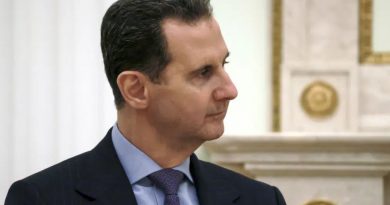‘The spring will be ours’ – freed protesters in Russia say ready to march again
Sakharovo (Reuters) – Anti-Kremlin protesters freed from detention in Russia say they are ready to keep demonstrating and have lost their fear of the authorities.
Police detained more than 11,000 people during three unsanctioned protests over the past weeks calling for the release of Kremlin critic Alexei Navalny, jailed for parole violations he denied.
Navalny allies have put protests on hold for now until warmer weather and say they are focused on trying to achieve a breakthrough at a parliamentary election in the autumn.
Some of those detained for taking part in the protests said they were ready to take to the streets again when the time was right.
“We need to keep fighting, it’s impossible to scare us,” Artem Medvedev, a 32-year-old marketing specialist, told Reuters minutes after being freed after five days in a detention centre outside Moscow.
“Amazing people are kept here and they only strengthened their beliefs. It was a mistake by people in power to hold us here all together,” he said.
With jails overwhelmed, Medvedev, with hundreds of other protesters, was transported to a facility near the village of Sakharovo outside Moscow, usually used as an immigration detention centre.
Poor Conditions
Protesters said conditions were poor and many were forced to spend nights in police buses before being jailed and then hours in overcrowded stuffy cells before being found beds.
One video sent to Reuters by Darya Stebletsova, an arrested protester, showed a rusty sink and a hole in the floor, used as a toilet.
Another protester, Veniamin, 54, said his cell only got access to soap, toilet paper and toothbrushes on the third day of his five-day arrest.
The Kremlin has acknowledged overcrowding and problems with finding proper jails for protesters due to the large number of arrests, but has blamed the demonstrators for ignoring warnings against taking part in illegal protests.
It has said any future protests would also be illegal, if unsanctioned in advance by the authorities, and would be handled by the police in the same way.
Outside, relatives and friends of the arrested protesters and volunteers waited for days to be able to pass them clothes, food, water and cigarettes.
Andrei Prokofiyev, a member of a Moscow municipal council, brought supplies for jailed activists. He said he had spent 14 hours waiting.
“Is there panic in the Kremlin? … Why are there so many illegal detentions? … In terms of public opinion, it will work against the authorities,” he said.
Boris Krit, the father of one of the arrested protesters, was waiting outside the jail for the release of his son.
He likened the opposition’s decision to put protests on hold to the strategy employed by the Polish Solidarity protest movement against communism in the 1980s.
“The winter is yours but the spring will be ours,” he said. “What they (the police) do, it only makes people angry. This generation has no fear.”

